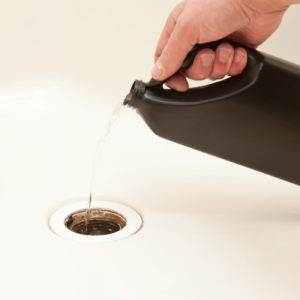If you’ve never had to deal with blocked drains, consider yourself lucky. It’s a messy, unpleasant problem that often leads to flooded bathrooms, kitchens, and basements (not to mention nasty odors). But unless you want to call in a plumber every time you experience a clog, it’s up to you to take the necessary steps to prevent them in the future—and know what to do if you find yourself dealiclick here e.
When Prevention Fails
A blocked drain is typically the result of a buildup of debris, like soap residue, hair, or food waste. If you can identify where the blockage has occurred (usually near a sink, bathtub, shower, or toilet) you can try to remove it manually using a simple plunger or an auger with a flexible cable. If you’re unsure of how to use these tools, click here for a how-to video.
What Not to Use
Your best bet for unblocking a drain is to use a mechanical tool rather than chemicals. Most drain cleaners are highly corrosive and should not be used on plastic pipes, as they create a risk of fire or explosion. They can also release hazardous gases when mixed with other products, so it’s best to avoid using them altogether.
Keeping Your Drains Clear
Once your blocked drain is clear, you’ll need to take steps to make sure it stays that way. Start by investing in some strainers for every plughole in your home. These inexpensive gadgets trap debris before it can enter your pipes, and are especially useful for keeping hair out of drains connected to showers and tubs. You should also be sure to run hot water down the drains regularly and flush out any leftover soap residues.
Why Leave it to the Pros?
If your efforts don’t resolve the problem, it’s time to call in a trained professional. Plumbers come equipped with specialized tools and chemicals that are much more effective at eliminating blockages than anything you have in your home. Plus, they’ve likely had experience with this type of problem in the past, so they’ll be able to solve the issue quickly and help to prevent it from happening again.
Don’t Wait Until It’s Too Late!
It’s always a good idea to call in a professional as soon as you notice any slow draining or bad smells coming from your drains. The longer you wait, the more damage a blocked drain can cause, and the more expensive it will be to repair. Plus, leaving a blockage untreated can lead to overflowing toilets, backed-up sinks, and even foul-smelling mold growth, which can be difficult and costly to clean up.
Stay Safe
Whenever you attempt to unclog a blocked drain, remember to wear protective gear such as gloves and goggles. And if you need to work under the sink, make sure to turn off the water supply first to avoid risking electric shock from the power switch or any electrical appliances near the area.
Following these simple tips can help you keep your drains clear and prevent expensive plumbing problems in the future. So, put on your rubber gloves and get to plunging!


